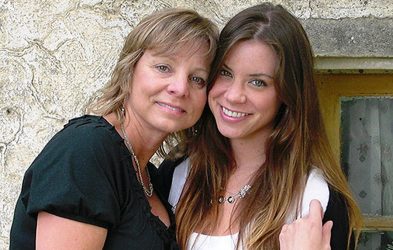By Nora Miller
The idea of the basic end-of-life conversation is to uncover and explore feelings and opinions about the difficult decisions that come along, preferably long before arriving at the end of one’s life, and how you want others to participate in those decisions or even make them for you. There are plenty of standard forms which lead you through different end-of-life scenarios, with thought-provoking questions such as “if I am incapacitated and require mechanical ventilation to stay alive, I would want the doctors to…” and so on. It’s my contention (and that of many others, of course) this process not only helps to clarify the decision making process and choices, but it also encourages thinking about the inevitable fact of death, and hopefully, helps break down emotional barriers which keep us from preparing for it.
Dementia and the Difficult End-of-Life Decisions
But it suddenly occurred to me one day there’s a whole separate set of decisions that must be made long before we develop the terminal illness that eventually requires end-of-life thinking. In some ways, these may seem even harder than some of the end-of-life decisions, since the subject of the decision is still present and may not consider it necessary for anyone else to decide for them.
I got to thinking about this issue when a friend developed dementia, and I watched her family trying to work out how to help her stay safe and happy. Several siblings had attended a family wedding, and each noticed a distinct change in my friend’s behavior. Each of these individuals might have dismissed their observation as a misperception, but together they realized something was wrong. They approached her daughter and as a result, she went to her doctor, and then to a specialist, and had tests, and eventually received a diagnosis of early-onset Alzheimer’s. Her markedly diminished sense of appropriate behavior and a growing inability to follow directions or plan out a simple procedure manifested first in her driving. She got lost, she took chances, she attended to things that had nothing to do with getting down the road. In sum, she was the epitome of the distracted driver.
Given that her husband was killed by a distracted driver not two years before, the family thought she would respond rationally to their suggestions she had to stop driving. She did not. She repeatedly pointed out she had never hit anyone in the past. She dismissed any argument she’d feel absolutely terribly if she did hit someone by repeating, again, that she never had in the past so she thought it made no difference how she might feel if. I’ve since learned the onset of dementia can be marked by “looping” or perseveration that is resistant to interruption or diversion.
This same basic interaction was repeated for other difficult decisions—giving up access to her bank accounts after she spent more than $12,000 on an Internet site to buy about $3,500 worth of gold coins, taking away her keys to the house after she lost the fifth one in as many weeks, and finally, moving into assisted living after she left an unlit gas burner on for the second time, filling the house with enough gas that her daughter had to take her outside to recover. In each case, she took the position the siblings were the ones being irrational and intransigent, not her. I found myself empathizing with all sides, imagining how difficult it had to be to find yourself subject to that slowly tilting disorientation, and also seeing how stressful it was for the family to want to keep a loved one safe from her own disability, only to be seen as insulting and tyrannical.
Deciding Now
So, in light of all that, I want to have a conversation about the possibility I might develop such problems some day, and how I’d like to have my son make decisions for me. And, given my experiences with my friend, it seems like the main issue is less what should be done about any particular problem, and more about how to assert the trust needed to discuss the timing of relinquished, or at least supplemented, decision making.
I thought it might make sense to have a written agreement. If we talk about it now, we can itemize preferred choices for various situations, or perhaps lay out a set of possible scenarios and what I think I’d like to have happen. But mostly, I’d like this agreement to say, in effect, “I, Nora Miller, have agreed to this plan, on this day when my appointed caregiver and I agree I am currently of sound mind.”
A Letter to My Future Self
Such a paper, signed and witnessed, might carry more weight with my future fearful demented self than all the gentle or frustrated arguments made by my loved ones. I might even write it as a letter, from my old self to my future self, saying something like “Dear Me, no matter how much you think you are okay right now and all those around you are not seeing things as clearly as you do, trust me when I say on this day in your past, you agreed if your son ever came to you with these concerns, you would accept his judgment, because you know he only acts out of love and you trust him to have the ability and integrity to know when the time has come to make these decisions for you.”
For My Son
It occurs to me this is as much for my son’s benefit as for mine. As an only child, he will necessarily face these moments alone, or at best, with the support of people who haven’t known me all their lives. More than a few times, my friend’s daughter, also an only child, commented to me how her mother’s growing dementia was doubly hard for her, because she had to reverse roles and make decisions for the person who had always made the family decisions—her mother—and she was unable to share these difficult decisions with her most valued advisor—her mother. I’d like to think my son can use this conversation, and the ongoing renewal of it, and the hard-copy documentation of it, as a surrogate for the counsel he has turned to all his life—me.
About the Author
Nora’s husband, Rick, died peacefully after exercising his right to Death with Dignity under Oregon’s law; her mother and sister were not so fortunate. These contrasting experiences have motivated Nora to do what she can to promote the enactment of Death with Dignity laws in all states, to encourage medical personnel to learn about and embrace the benefits of the law for their patients, and to challenge misrepresentations of the facts about Death with Dignity wherever possible.
Read our open call for guest writers →
Image by Matt Hintsa.



No comments.